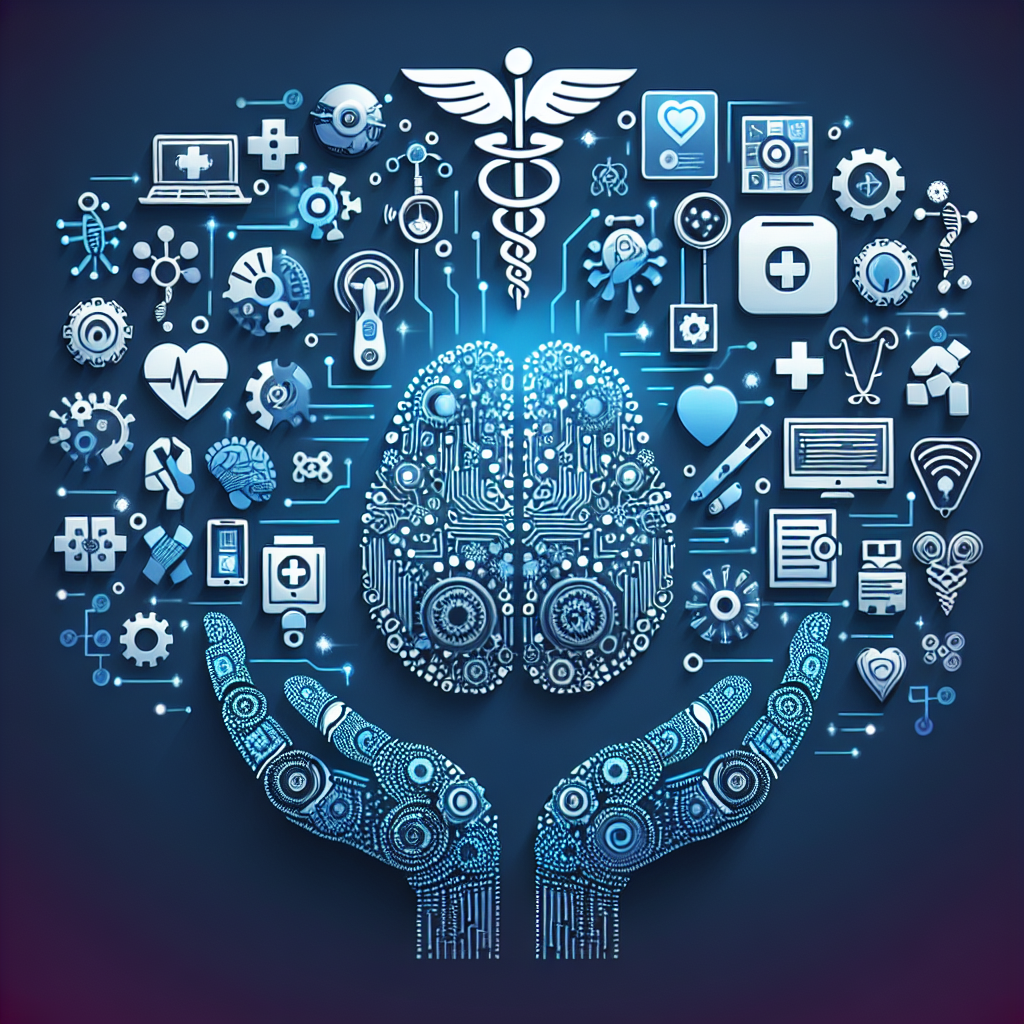Artificial Intelligence (AI) has been making significant strides in the healthcare industry, revolutionizing the way medical professionals diagnose, treat, and manage diseases. With the ability to process large amounts of data quickly and accurately, AI has the potential to transform healthcare delivery and improve patient outcomes. In this article, we will explore how AI is being used in healthcare, its benefits and challenges, and the future of AI in the medical field.
### How AI is revolutionizing healthcare
AI technologies, such as machine learning, natural language processing, and computer vision, are being used to analyze medical images, predict patient outcomes, and personalize treatment plans. For example, AI algorithms can analyze medical images, such as X-rays and MRIs, to detect abnormalities and assist radiologists in making accurate diagnoses. This can help reduce the time it takes to diagnose diseases and improve patient outcomes.
AI is also being used to predict patient outcomes and personalize treatment plans. By analyzing data from electronic health records, AI algorithms can identify patterns and trends that can help doctors predict which patients are at risk of developing certain diseases or complications. This can help healthcare providers intervene early and provide personalized treatment plans to improve patient outcomes.
### Benefits of AI in healthcare
There are several benefits of using AI in healthcare, including:
1. Improved accuracy: AI algorithms can analyze large amounts of data quickly and accurately, helping healthcare providers make more accurate diagnoses and treatment decisions.
2. Faster diagnosis: AI can process medical images and other data faster than humans, reducing the time it takes to diagnose diseases and start treatment.
3. Personalized treatment: AI can analyze patient data to identify patterns and trends that can help doctors personalize treatment plans based on each patient’s unique needs.
4. Cost savings: By streamlining processes and reducing errors, AI can help healthcare providers save time and money, leading to lower healthcare costs for patients.
5. Remote monitoring: AI-powered devices can monitor patients remotely, allowing healthcare providers to track patient progress and intervene early if necessary.
### Challenges of AI in healthcare
While AI has the potential to revolutionize healthcare, there are also challenges that need to be addressed, including:
1. Data privacy and security: AI algorithms rely on large amounts of data to make accurate predictions, raising concerns about patient privacy and data security.
2. Bias: AI algorithms can be biased if they are trained on biased or incomplete data, leading to inaccurate predictions and treatment recommendations.
3. Regulation: The use of AI in healthcare is still relatively new, and there are concerns about regulatory oversight and guidelines to ensure the safe and ethical use of AI technologies.
4. Integration with existing systems: Integrating AI technologies with existing healthcare systems and workflows can be challenging and require significant time and resources.
### The future of AI in healthcare
Despite these challenges, the future of AI in healthcare looks promising. AI technologies are constantly evolving and becoming more sophisticated, allowing healthcare providers to leverage the power of AI to improve patient care and outcomes. In the future, we can expect to see AI being used to:
1. Predict disease outbreaks: AI algorithms can analyze data from various sources, such as social media and healthcare records, to predict disease outbreaks and help public health officials respond quickly.
2. Develop personalized treatment plans: AI can analyze patient data, such as genetic information and medical history, to develop personalized treatment plans that are tailored to each patient’s needs.
3. Enhance telemedicine: AI-powered devices can monitor patients remotely and provide real-time feedback to healthcare providers, allowing for more efficient and effective telemedicine services.
4. Improve drug discovery: AI algorithms can analyze large amounts of data to identify potential drug candidates and predict how they will interact with the human body, leading to faster and more effective drug discovery processes.
### FAQs
**1. How is AI being used in healthcare?**
AI is being used in healthcare to analyze medical images, predict patient outcomes, personalize treatment plans, and improve healthcare delivery.
**2. What are the benefits of using AI in healthcare?**
The benefits of using AI in healthcare include improved accuracy, faster diagnosis, personalized treatment, cost savings, and remote monitoring.
**3. What are the challenges of using AI in healthcare?**
The challenges of using AI in healthcare include data privacy and security concerns, bias in AI algorithms, regulatory oversight, and integration with existing systems.
**4. What is the future of AI in healthcare?**
The future of AI in healthcare looks promising, with AI being used to predict disease outbreaks, develop personalized treatment plans, enhance telemedicine services, and improve drug discovery processes.
In conclusion, AI is a game-changer in healthcare, with the potential to transform the way healthcare is delivered and improve patient outcomes. While there are challenges that need to be addressed, the future of AI in healthcare looks promising, with AI technologies continuing to evolve and become more sophisticated. By leveraging the power of AI, healthcare providers can improve patient care, reduce costs, and revolutionize the way diseases are diagnosed and treated.

